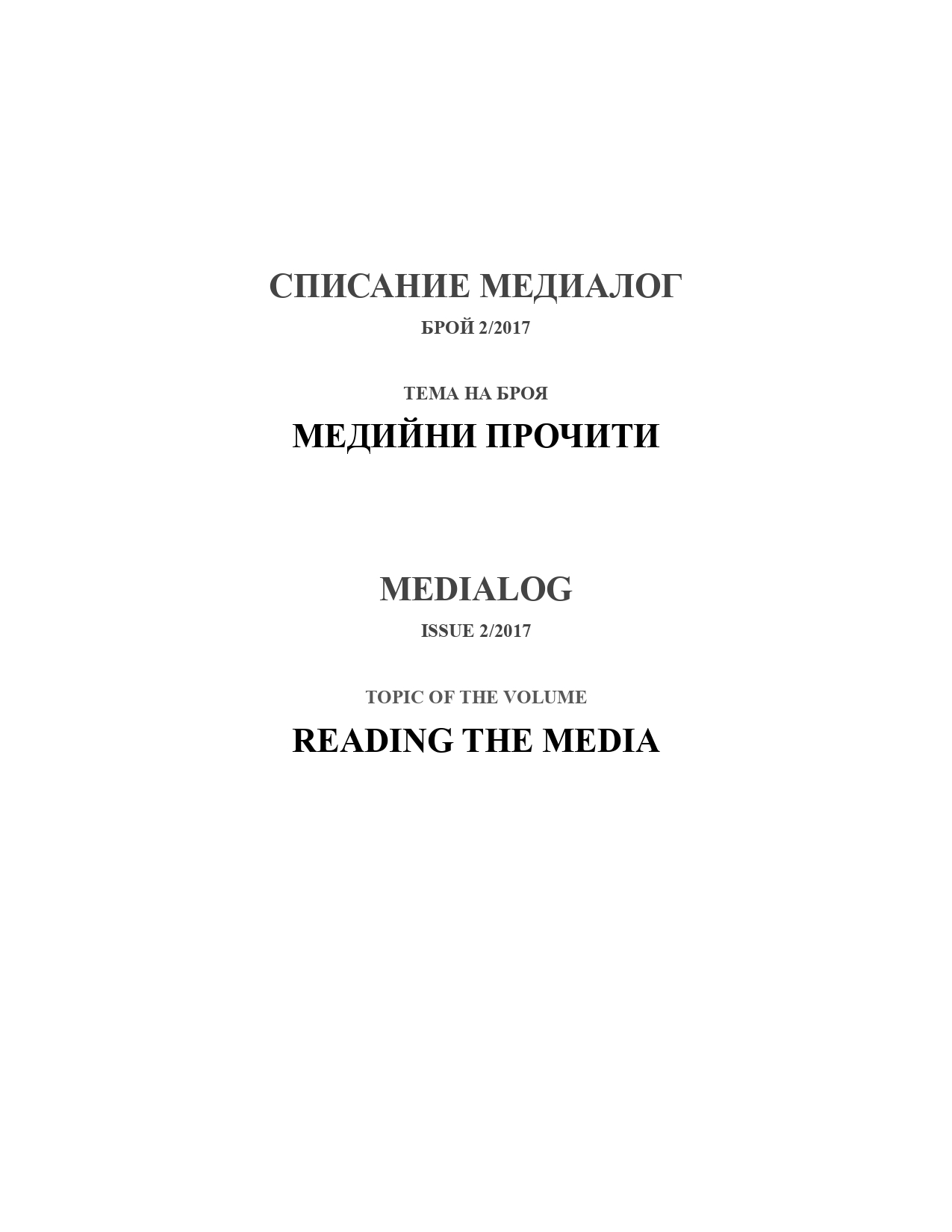
Каква Европа искаме?
‘Centre and Periphery of the Europeanised Public Spheres’ by Ralitsa Kovacheva – book review
More...We kindly inform you that, as long as the subject affiliation of our 300.000+ articles is in progress, you might get unsufficient or no results on your third level or second level search. In this case, please broaden your search criteria.

‘Centre and Periphery of the Europeanised Public Spheres’ by Ralitsa Kovacheva – book review
More...
Book review : ‘Sofia: Ideology, Urban planning and Life under Socialism’ by Elitza Stanoeva
More...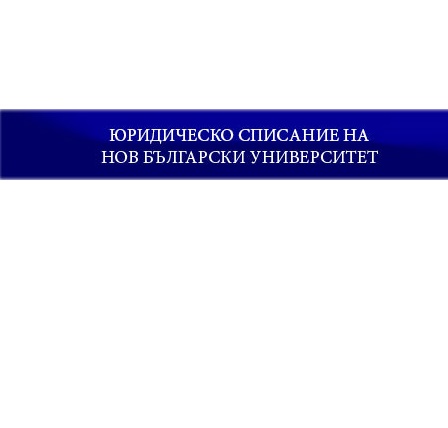
The legal process for the creation of nuclear-free zones is based on the first resolution adopted by the United Nations General Assembly (UN) in 1946. It calls for nuclear weapons and other types of weapons that can be used for mass destruction to be excluded from state military arsenals. The UN Charter legally establishes the principle of disarmament.
More...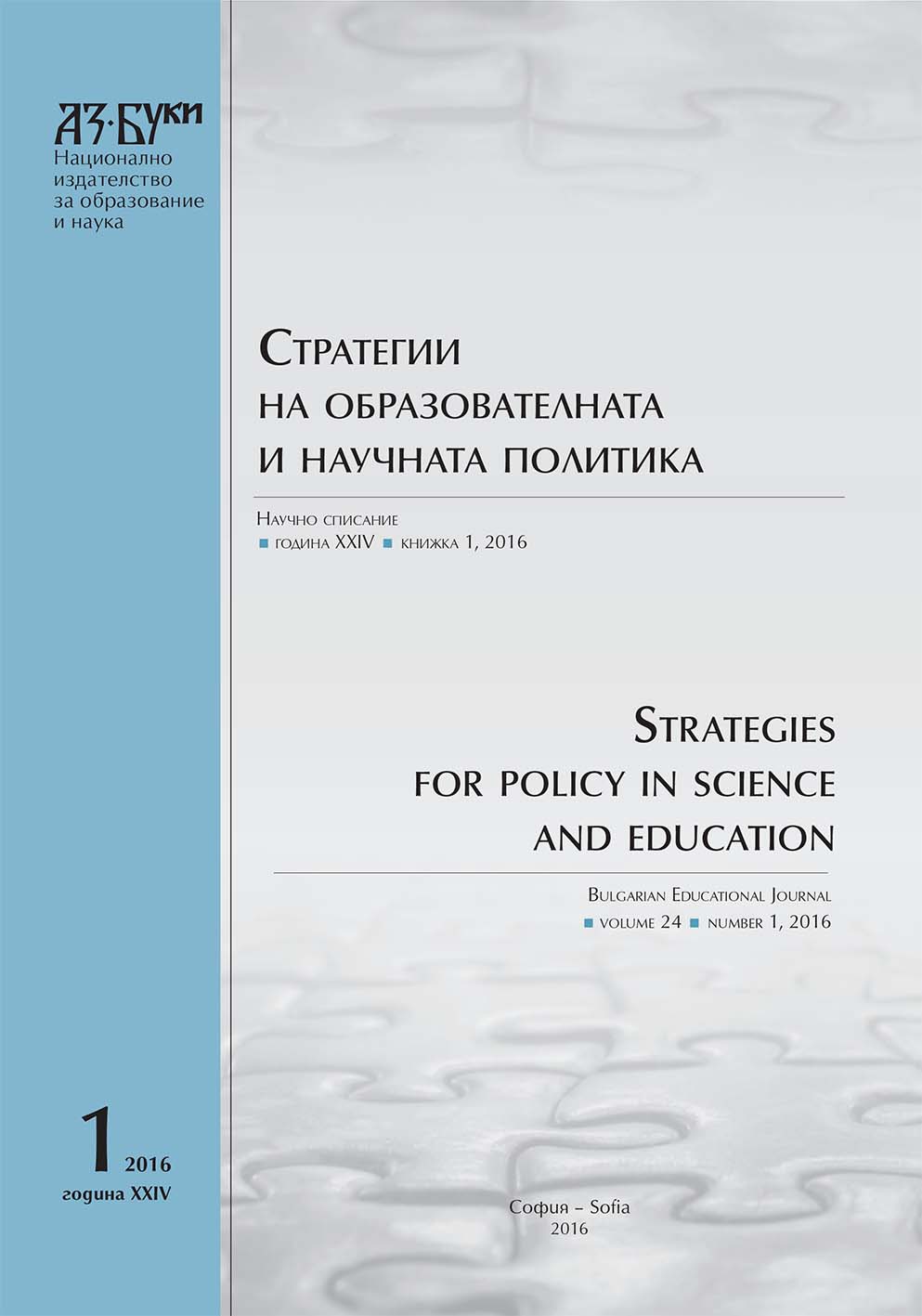
This report analyzes the internal logic (and history) of occurrence of the unique Plovdiv scientific tradition in the study of reflexive problems. Its originality consolidates around the following features: recognition of the diversity of the phenomenon (and construct) reflection as his hallmark; differentiation of practiological reflection as a separate type; separation of the intermediate theory of reflexive approach that preserves the authentic content of the construct reflection on its application in practice; development of various technologies and applications which rationalize the application of ideas for reflection and realize them in social practice.
More...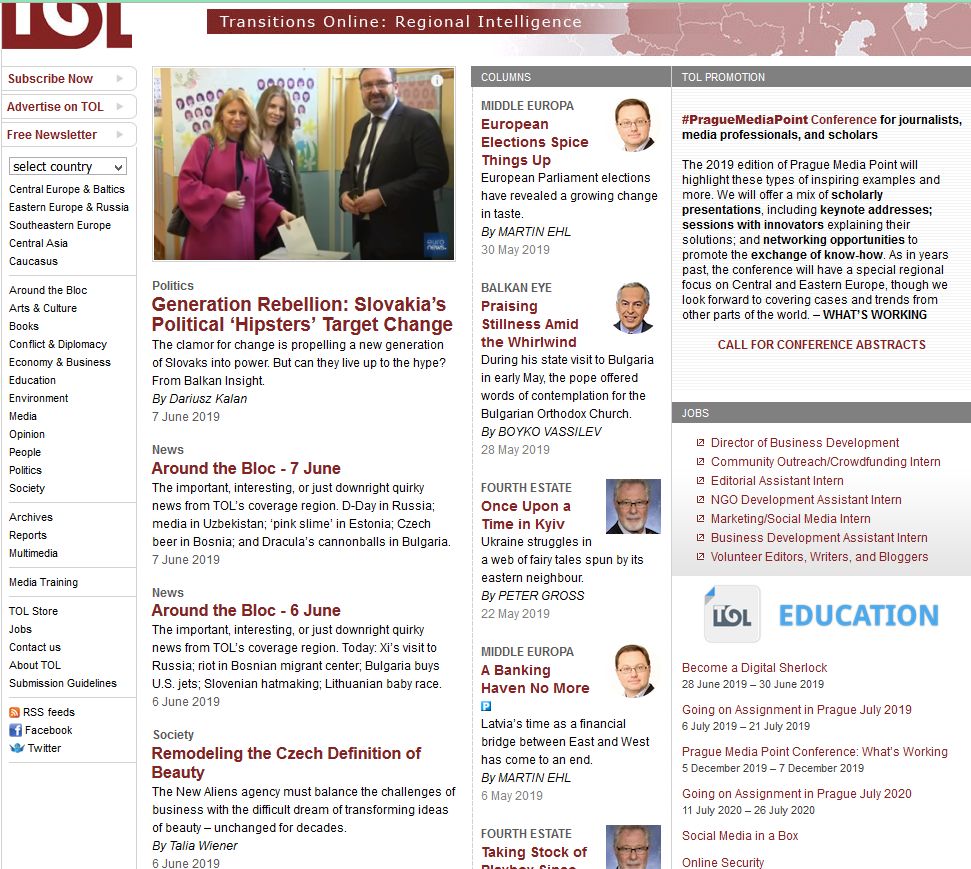
The important, interesting, or just downright quirky news from TOL’s coverage region. D-Day in Russia; media in Uzbekistan; ‘pink slime’ in Estonia; Czech beer in Bosnia; and Dracula’s cannonballs in Bulgaria.
More...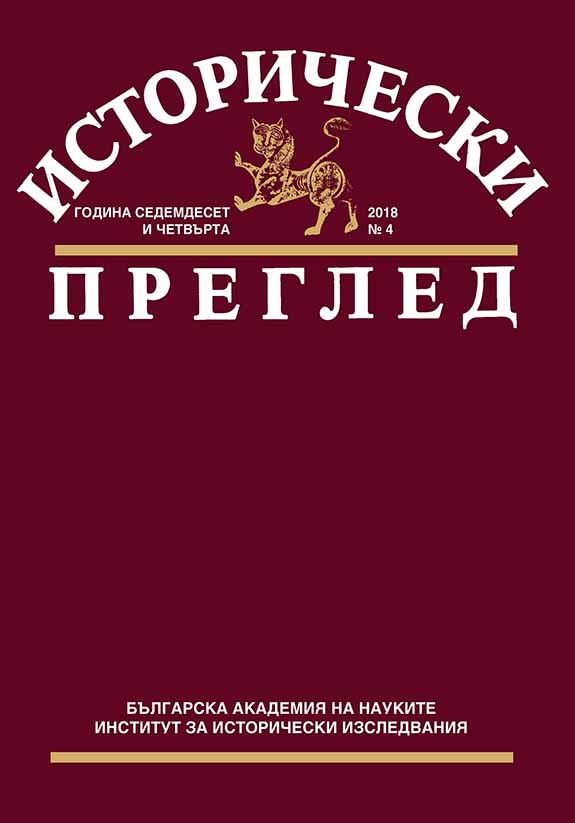
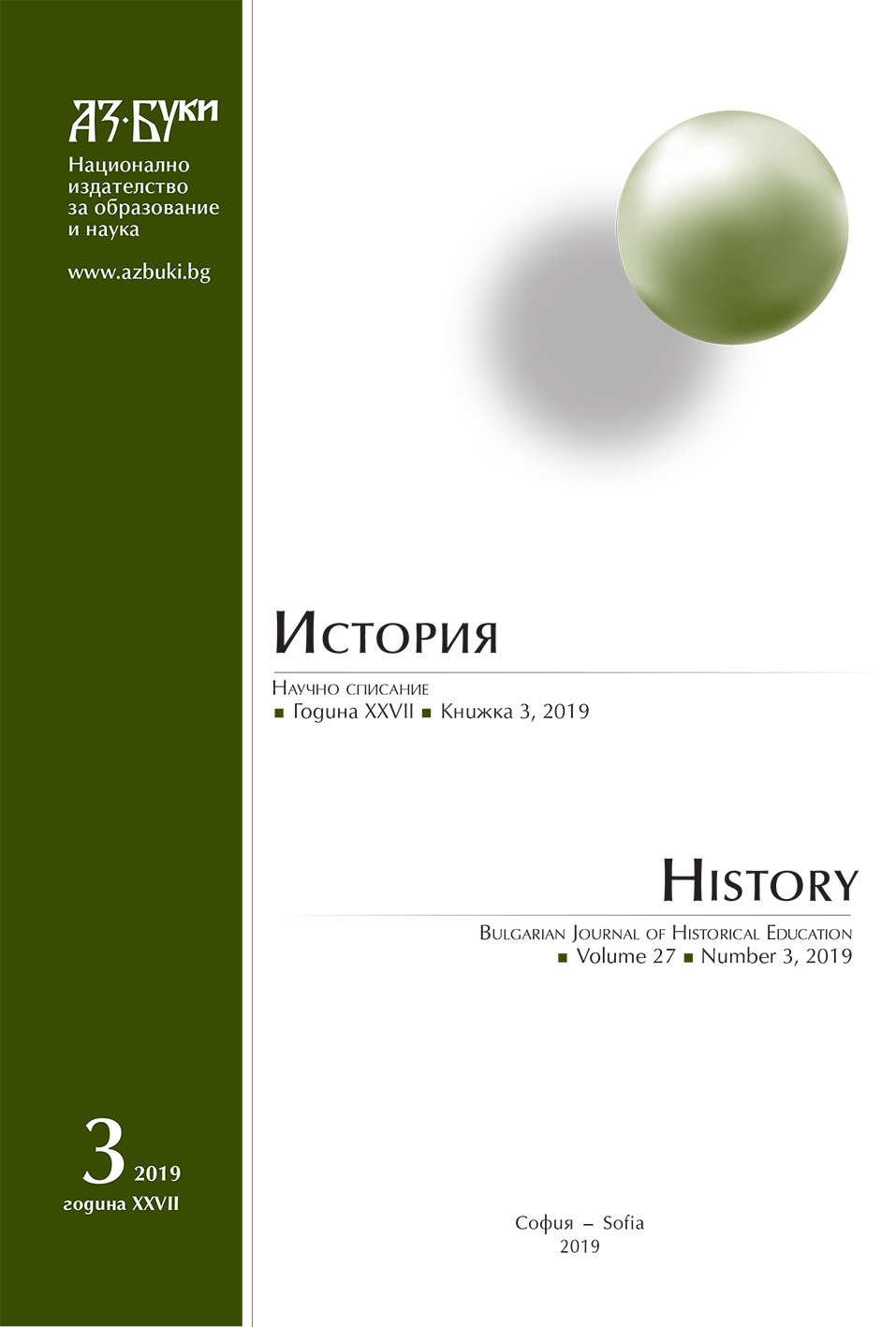
Considering some mistakes made by student during a TV competition on national media, symptomatic of „the state of things“, and based on the theory of affection, the article raises the question of the theoretical and empirical deficits in the historical education and cultural formation of students. It subjects through historical examples the role of the relational context in which the knowledge is absorbed and embodied to challenge the other context of knowledge - the affective. And with that, it turns the scientific focus on the role of hidden curricula for civic education in history,which today define our tomorrow.
More...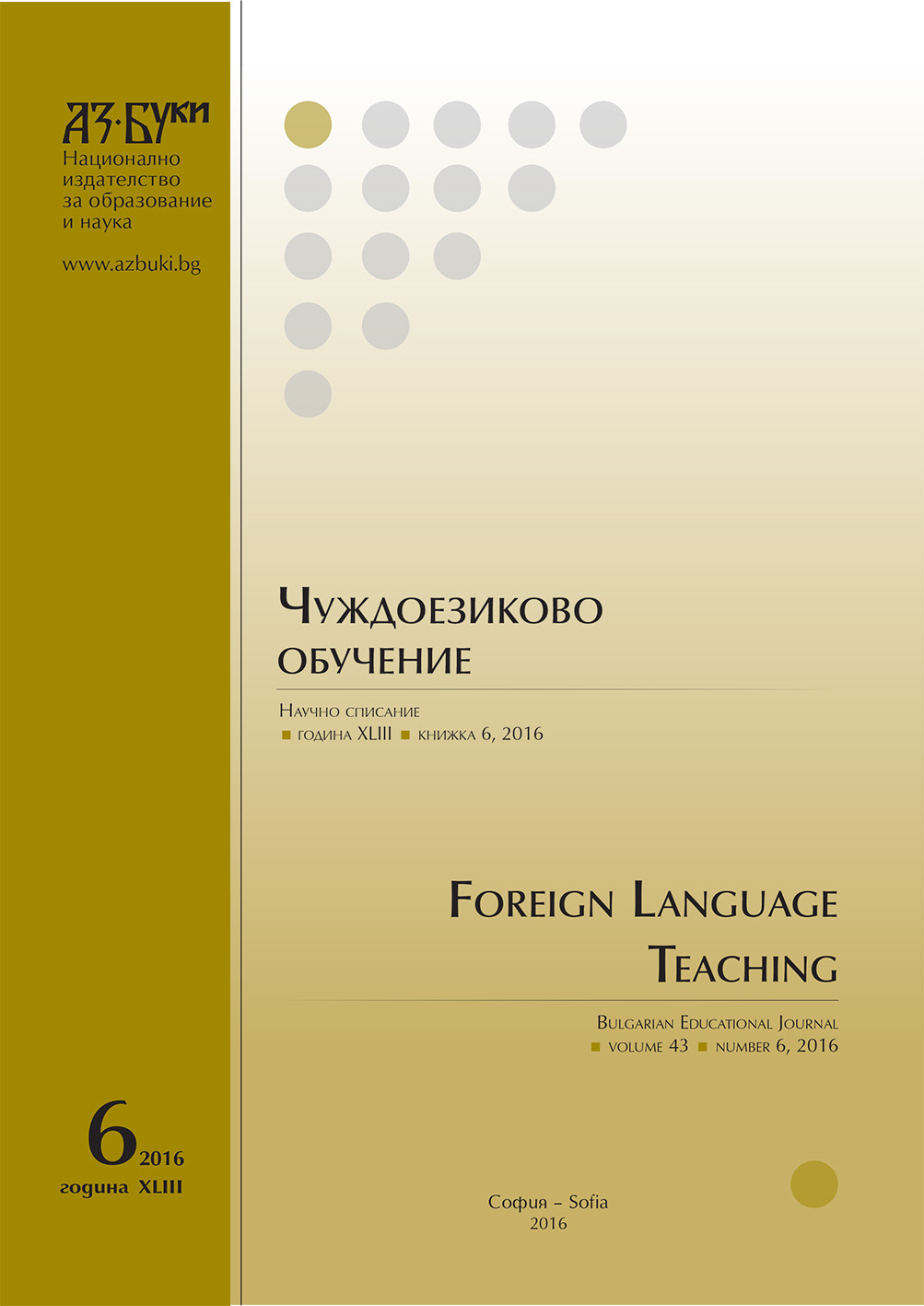
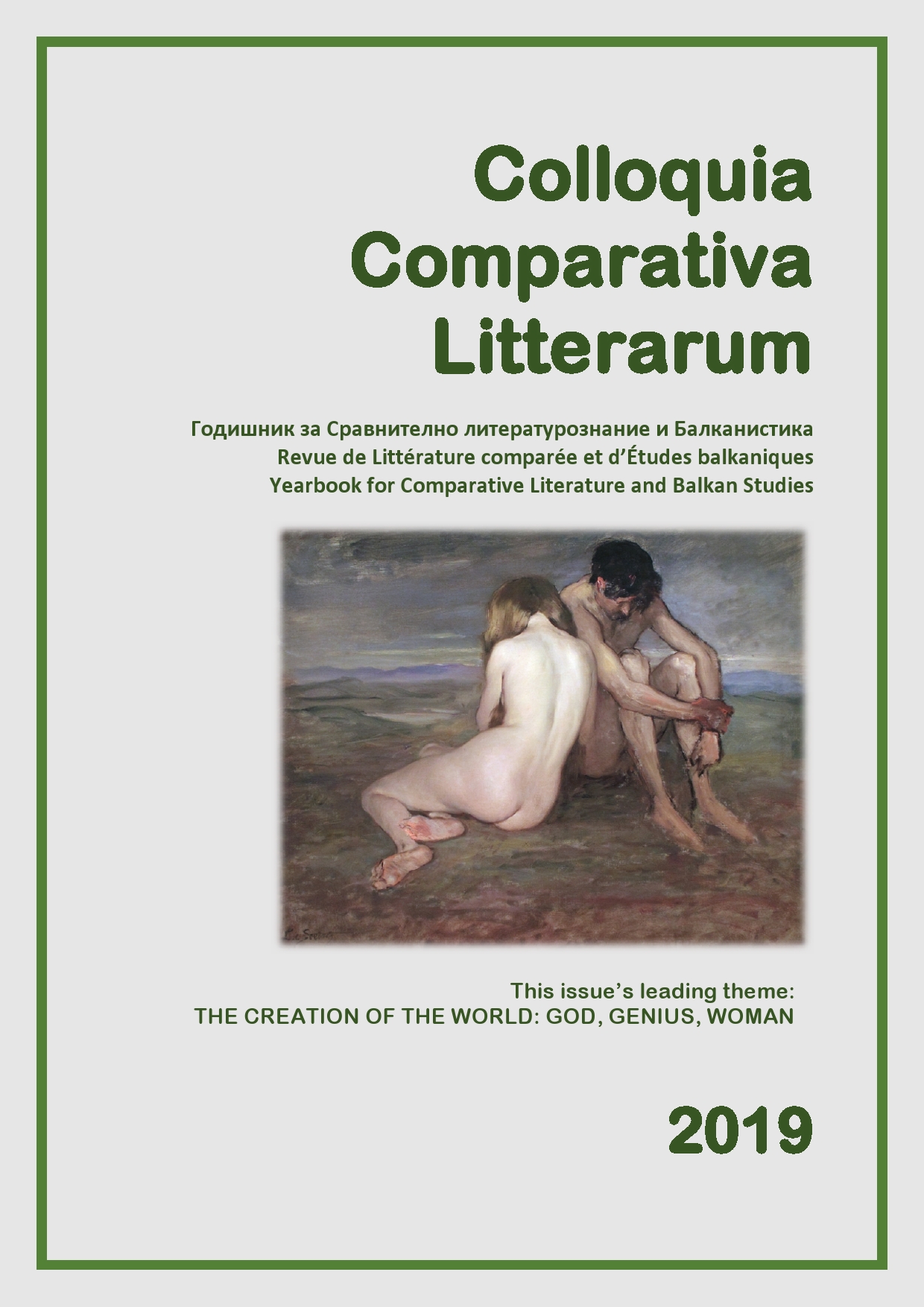
The aim of this study is to present the modern interpretations of the first Biblical couple in the interwar European novel. Works from French, Romanian and Bulgarian literature have been taken as examples on whose basis analysis has been made of the possible convergence of ideas in Europe during that period. The figure of the first Biblical family has been attracting writers in their aesthetic quests through the reflection on social models and the fulfillment of Man and Woman. Considering this context, the refusal of posterity becomes a painful theme. There is a dilemma between the desire to preserve the couple in the initial stage of innocence before the Fall and the intent to end the cycle of errors repeated by mankind. Last but not least, the theme raises the question of the newly emerging female identity which breaks away from the traditional roles of mother and wife.
More...
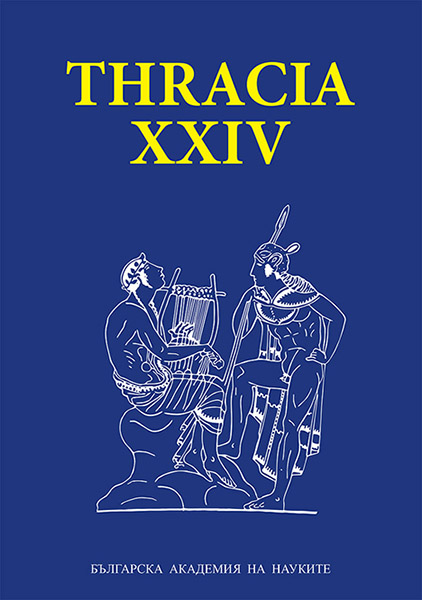
The text deals with the theatrical activity of Prof. Alexander Fol’s father, the theatre director Nikolay Fol, who was a remarkable figure in Bulgarian culture. Emphasis is placed both on his performances at the National Theatre and on his dramatic work. It is noted that he was an artist, intrinsically connected with the tendencies of looking for new forms in art between the two world wars. It is emphasised that Nikolay Fol implemented in his work European quests in the field of scenography, modern music, plastic art and choreography from the second half of the 20th century. His orientation was to the intellectual, laconic theatre, which contains significant ideas related to human existence and consciousness, to expressionist means of suggestion. In the spirit of German expressionism, his directorial decisions were towards the use of conditional decoration, large massive scenes, choirs that talk and dance in a modern style. His productions were monumental, they often touched the audiences deeply with many forms of expression. Critics defined his performances as bright, dynamic, entertaining, engaging. Attention is drawn to the fact that an important moment in Nikolay Fol’s biography is related to his belief that children’s theatre is extremely important for the development of adolescents, prompting him to become the founder of several children’s schools.
More...
The paper aims to present the personality of Vera Bojadjhieva-Fol – the mother of Prof. Alexander Fol. Her biography is studied in the context of 20th century Bulgarian culture and in interaction with her closest circle of relatives, friends and colleagues. A special emphasis is placed on her intellectual activity of long-time teacher, gifted writer, journalist and translator, on her activity in the field of women’s movement and on her professional networks. Her place among Bulgarian female educated elites is highlighted.
More...
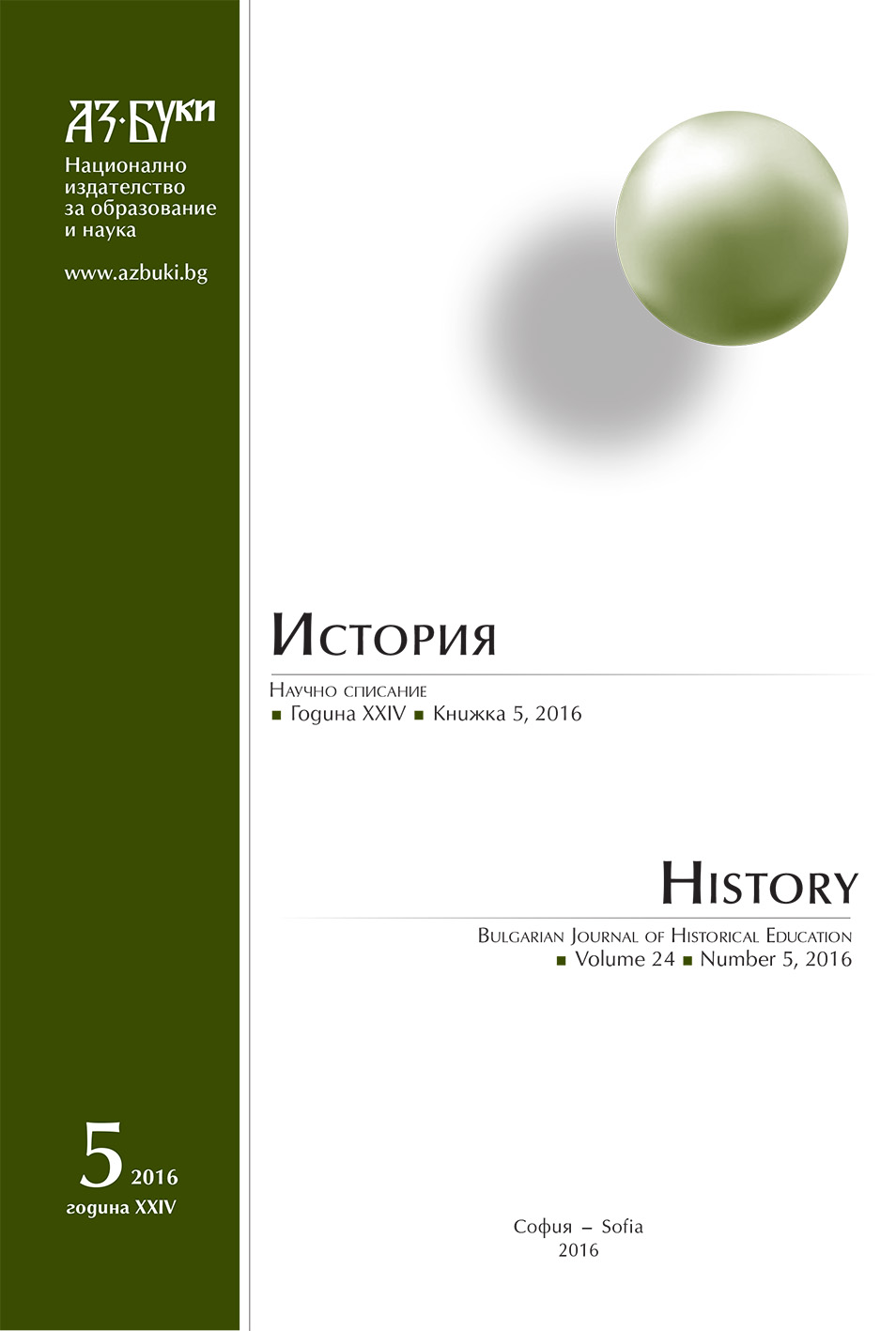
Russian revolutions of 1917 still attract the attention of the historians. Was Russia able to avoid those cataclysms? Why was the Proletarian revolution accomplished in an undeveloped rural country? These and many other questions have answers sought in the perspicacious books of the Russian religious philosopher Nikolai Berdyaev. He is the man who saw the truth that the revolution was the internal destiny of the Russian people and that Bolshevism could only be defeated with intellectual overcoming and not with guns.
More...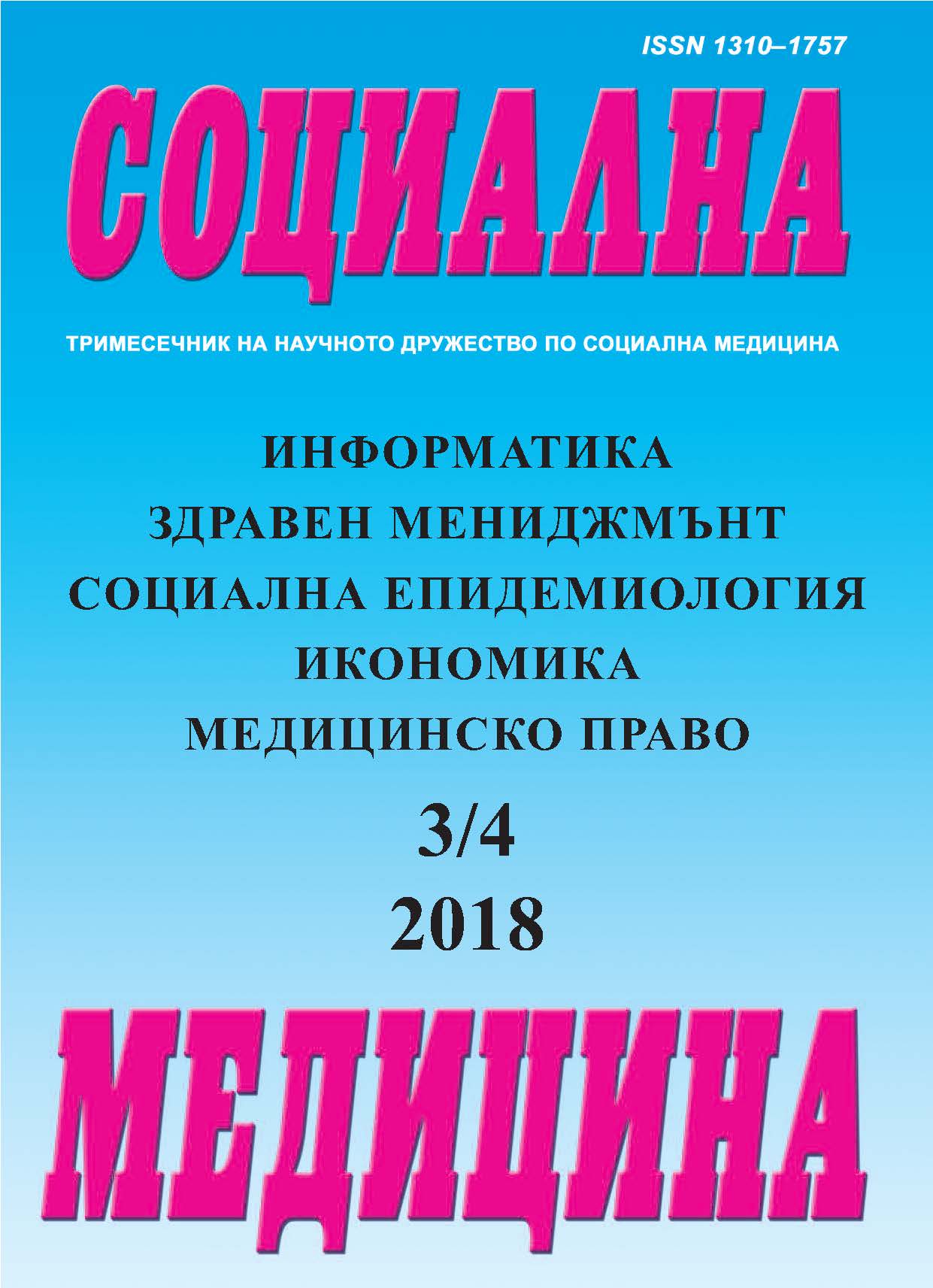
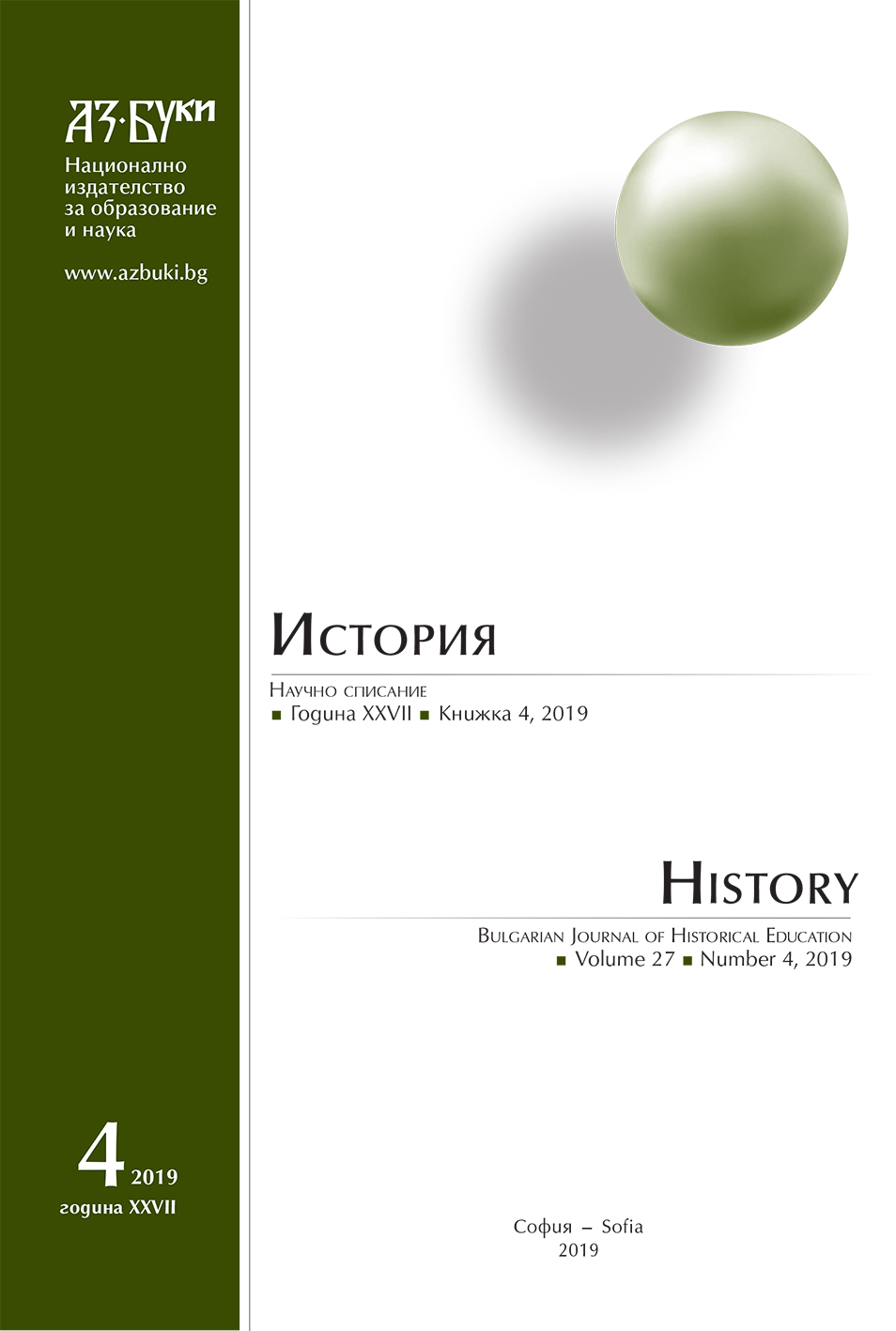
The article discuss the positions taken by the Polish press towards Polish-German and German-Soviet relations in the period directly preceding the outbreak of the war (August 1939). The supplementation of press views is information about the press policy of the authorities and the scale of freedom of political expression. The source basis are the most important political dailies, representing the views of the power camp and opposition groups.
More...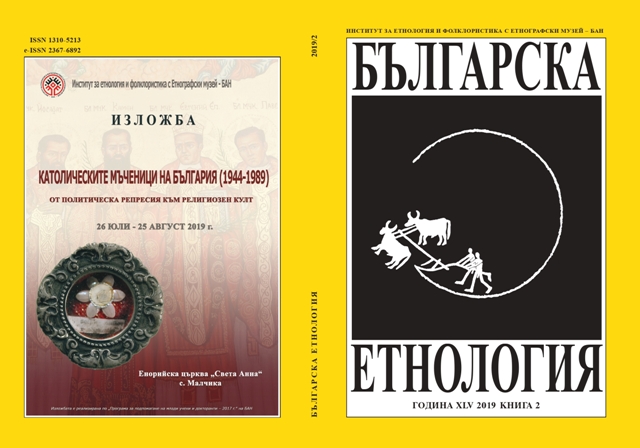
In the religious practices of the population in the Bulgarian lands, kurban is an instrument for expressing gratitude towards God for His support during times of hardship, illnesses, and ordeals. It is constantly present in ceremonial practices from time immemorial. However, as every other aspect of human life, it is subject to change. The alterations in religious beliefs lead to variations in the ritual itself and the nature of the sacrifice. Nevertheless, more detailed analysis shows that modern kurban represents a peculiar mixture of ancient traditions and newer religious customs. Furthermore, Christian and Islamic theologies are not always dominant in ceremonial practices. The influence of pagan cults is felt particularly strongly in the mountainous and semi-mountainous regions, where the role of the religious institutions is markedly weaker.
More...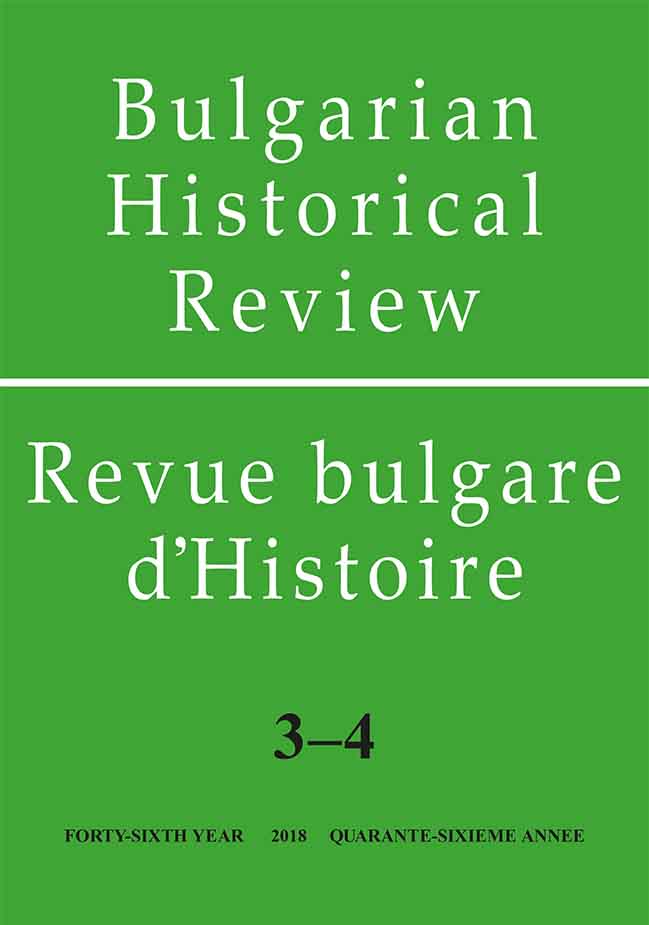
From the marriage of Zeus with Mnemosyne, the nine classical muses came from. Among them, Urania (the muse of astronomy) and Cleo (the patron of history) were in a peculiar relationship at a time when the inspiration played a fundamental role for the intellectual work which was considered an art. The very name of Cleo (the “Glorious”) points to one of the concepts for the mission of history to tell about bygone events and to celebrate someone’s deeds. This makes it a subjective occupation, the results of which depend on the skills of the narrator and his attitude toward the target object, which is why issues, events and personalities receive conflicting assessments. The acts of Cleo and Urania in antiquity were often mixed up, and this creates confusion in clarifying the relationships of individual characters. But the interaction between the two sisters gave birth to the fruit of a knowledge combining the scent of the universal infinity with poetry united in the essence of history. The very name (from the Greek ἱστορία – study, knowledge acquired through research) shows that the main task of a historian in his work is to study and verify the information, and only then comes the narrative, dressed in an appropriate form. Sources are of a various nature, so the individual disciplines involved with their analysis are also numerous. Thus, from the embrace of Urania with Cleo, the fundamental disciplines of history were born without which it could not claim to be a science. 1681 is considered to be the birth date of the auxiliary sciences of history. In this year Jean Mabillion’s profound work set the beginning of scientific diplomatics and palaeography. Subsequently, other works on the two disciplines were published; genealogy, heraldry, sigillography and historical chronology began to establish themselves as separate scientific and practical fields; over time a number of other specific areas in the study of source material occurred which gave rise to new and new special historical sciences. Then the nineteenth century came, which is perhaps the “classical century” of history, when having mastered the critical approach to the past and its sources, seekers of retrospective knowledge attempted to establish the norms in the historical process, and positivism was about to glorify history as a relatively objective science. However, the disappointment in the results, reinforced by the stress accompanying the ruination during the two world wars, contributed to the staggering at the other extreme and overestimation of the subjective moment in the past. Today historical science, as we have known it until recently, still attracts the attention of the general public, but has long since ceased to be a “fortress of high knowledge”. The walls are dilapidated, the princess is abducted, the treasure of the shattered vault is dragged in an unknown direction and laity barbarians are wandering along the narrow labyrinths of the castle, announcing their own “truth” about past times. History has ceded more and more of its territories to science disciplines “sprouted” from it, satisfying itself with the role of a “side dish” and “appetizer” to the main dishes of politology, sociology, culturology, ethnology, anthropology. Still the hope remains that Foucault’s pendulum may swing back and the combination of the “subjectivist” experience with that of the verifiable “exact” sciences may produce a new vision of history not only as a fundamental interpretative science but also as an applicable in practice (experimental) science. The article undertakes a brief attempt to trace the development and critical reflection of the studies of sources in Bulgaria focusing on the achievements of The Auxiliary Historical Disciplines Department at the Unified Centre of History at the Bulgarian Academy of Sciences, the successor of which is today’s Department of Auxiliary Historical Sciences and Informatics. The author expresses concern about the tendency of uncontrolled “swarming” of the science, the result of narrow specialization, but he also conveys optimism about the achievement of various qualitatively new forms of collaboration between history and “exact sciences” with the help of digital humanities.
More...
The text problematizes the interpretations of contemporary history in the context of the world historiography as well as Bulgarian historiography. Special attention is paid to the conception of contemporary history during socialist times in Bulgaria. Back then contemporary history was associated with the Bulgarian Communist Party coming in power and ruling. Most historians examined the early period of socialist epoque during 1944–1948 and until 1958 as to avoid the obligatory glorification of the BCP and its government. Those who studied the period after 1958 were the party historians in the university ideological departments and in the Institute of BCP history. After the collapse of state socialism contemporary history included the whole socialist period. It was examined by state institutions and NGO on the rich archives base and from the point of view of liberal democracy. Now historians tend to avoid studying the transition period 1989–2007 because of the lacking temporary distance and accessible archives. It became the object of political science, sociology, economy and anthropology. A huge amount of such literature was accumulated from 1989 until 2017 and was classified in Catalog of the Literature of the Bulgarian Transition (1989–2007) that can be found in the site of the Institute for Historical Studies. The text analyses 1281 pieces of work of this Catalog thus arguing that history of the transition obtains a solid base to become already the object of the historical science.
More...
At the beginning of the twentieth century, the Kronstadt Diving School of the Naval Department became one of the centers of diving operations in the world. Officers of the Bulgarian Navy were also trained there. Information about their training at school is reported in the Fund 417 records of the Russian State Navy Archive.
More...